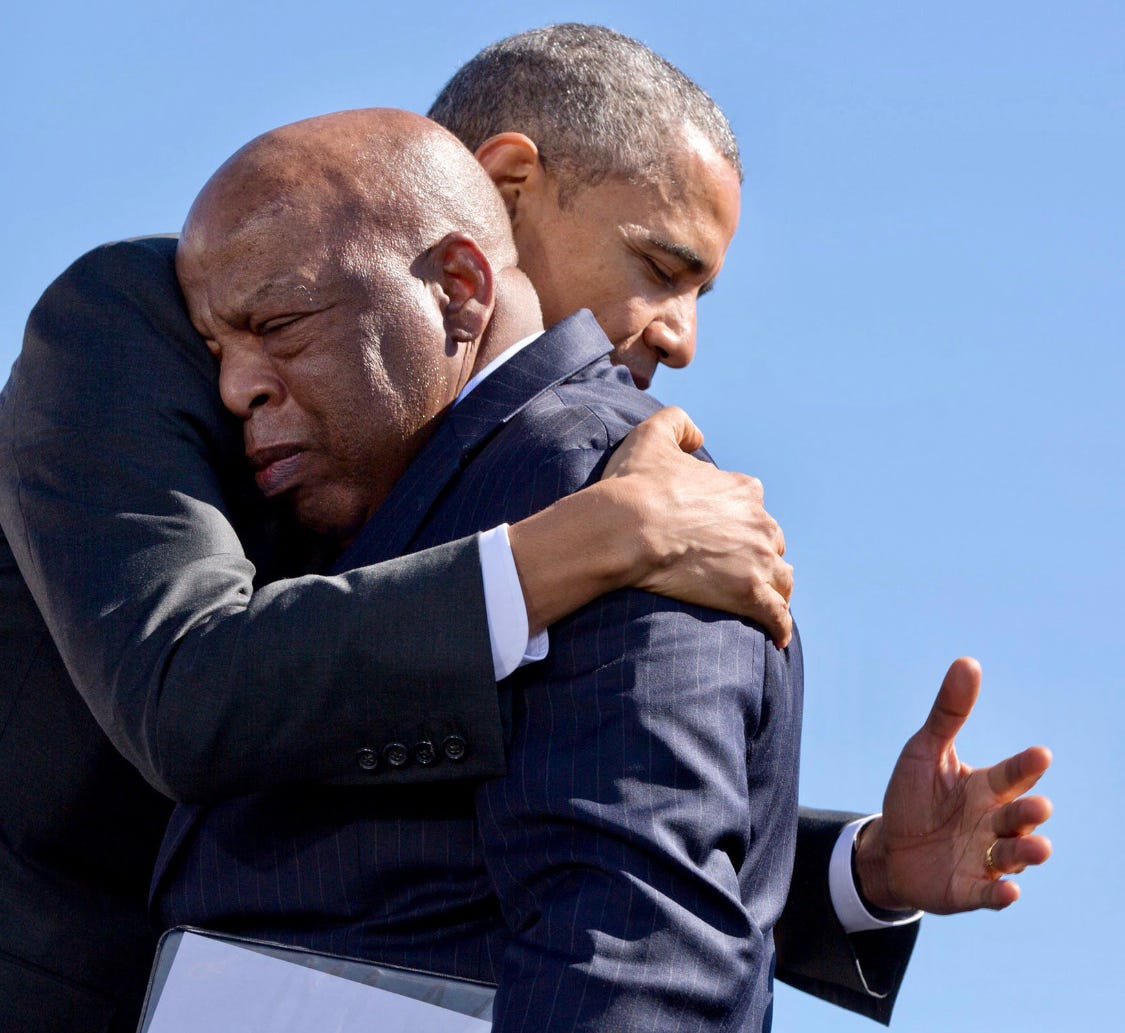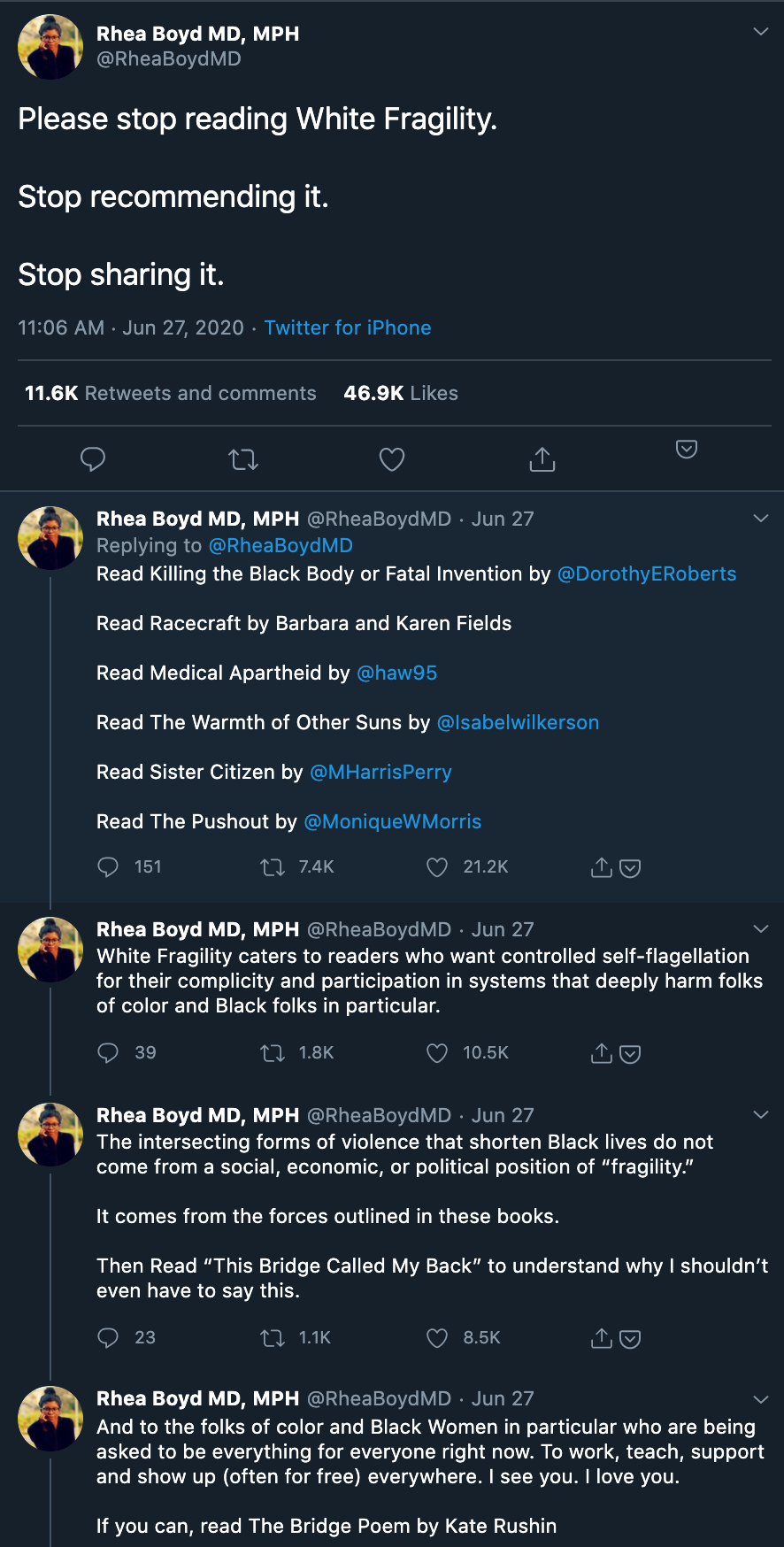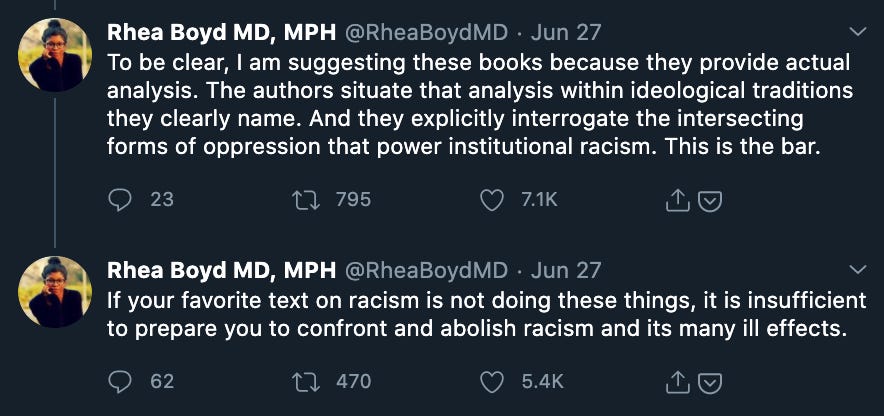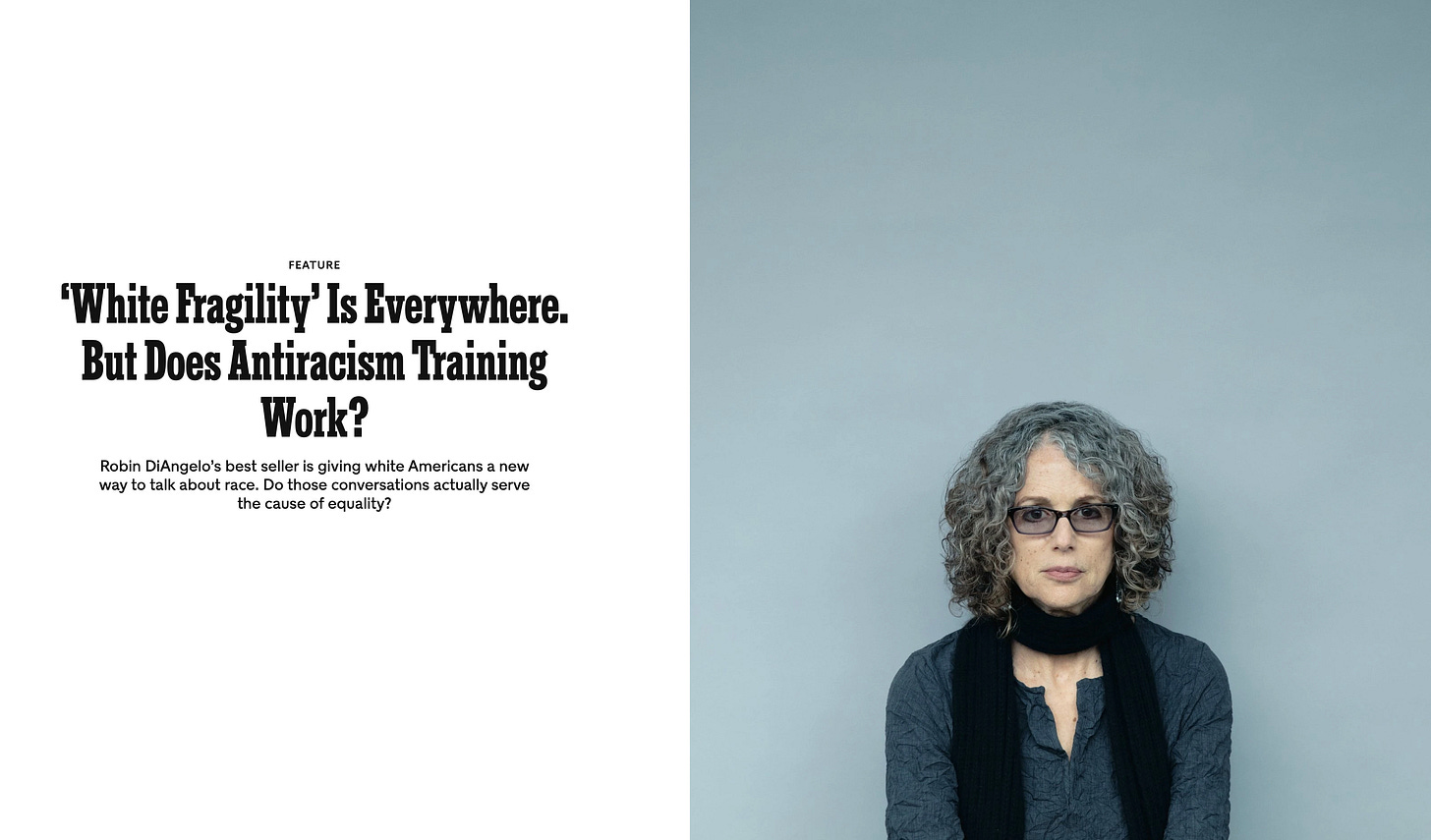John Lewis, the Conscience of the Congress, has done his work. Now it’s time for us to do ours.

“Representative John Lewis, who died Friday at age 80, will be remembered as a principal hero of the blood-drenched era not so long ago when Black people in the South were being shot, blown up or driven from their homes for seeking basic human rights. The moral authority Mr. Lewis exercised in the House of Representatives — while representing Georgia’s Fifth Congressional District for more than 30 years — found its headwaters in the aggressive yet self-sacrificial style of protests that he and his compatriots in the Student Nonviolent Coordinating Committee deployed in the early 1960s as part of the campaign that overthrew Southern apartheid.
These young demonstrators chose to underscore the barbaric nature of racism by placing themselves at risk of being shot, gassed or clubbed to death during protests that challenged the Southern practice of shutting Black people out of the polls and “white only” restaurants, and confining them to “colored only” seating on public conveyances. When arrested, S.N.C.C. members sometimes refused bail, dramatizing injustice and withholding financial support from a racist criminal justice system.
This young cohort conspicuously ignored members of the civil rights establishment who urged them to patiently pursue remedies through the courts. Among the out-of-touch elder statesmen was the distinguished civil rights attorney Thurgood Marshall, who was on the verge of becoming the nation’s first Black Supreme Court justice when he argued that young activists were wrong to continue the dangerous Freedom Rides of early 1961, in which interracial groups rode buses into the Deep South to test a Supreme Court ruling that had outlawed segregation in interstate transport.
Mr. Marshall condemned the Freedom Rides as a wasted effort that would only get people killed. But in the mind of Mr. Lewis, the depredations that Black Americans were experiencing at the time were too pressing a matter to be left to a slow judicial process and a handful of attorneys in a closed courtroom. By attacking Jim Crow publicly in the heart of the Deep South, the young activists in particular were animating a broad mass movement in a bid to awaken Americans generally to the inhumanity of Southern apartheid. Mr. Lewis came away from the encounter with Mr. Marshall understanding that the mass revolt brewing in the South was as much a battle against the complacency of the civil rights establishment as against racism itself.” Source
The book White Fragility by Robin Diangelo has been a #1 Bestseller and go-to guide for many people with the intention of doing this good work.
However, many people of color, including many experts in the field of social reform and indigenous rights find the book deeply troubling and problematic.

3. The Bridge Poem ~ Kate Rushin
I’ve had enough
I’m sick of seeing and touching
Both sides of things
Sick of being the damn bridge for everybody
Nobody
Can talk to anybody
Without me
Right?
I explain my mother to my father
my father to my little sister
My little sister to my brother
my brother to the white feminists
The white feminists to the Black church folks
the Black church folks to the ex-hippies
the ex-hippies to the Black separatists
the Black separatists to the artists
the artists to my friends’ parents…
Then
I’ve got to explain myself
To everybody
I do more translating
Than the Gawdamn U.N.
Forget it
I’m sick of it.
I’m sick of filling in your gaps
Sick of being your insurance against
the isolation of your self-imposed limitations
Sick of being the crazy at your holiday dinners
Sick of being the odd one at your Sunday Brunches
Sick of being the sole Black friend to 34 individual white people
Find another connection to the rest of the world
Find something else to make you legitimate
Find some other way to be political and hip
I will not be the bridge to your womanhood
Your manhood
Your humanness
I’m sick of reminding you not to
Close off too tight for too long
I’m sick of mediating with your worst self
On behalf of your better selves
I am sick
Of having to remind you
To breathe
Before you suffocate
Your own fool self
Forget it
Stretch or drown
Evolve or die
The bridge I must be
Is the bridge to my own power
I must translate
My own fears
Mediate
My own weaknesses
I must be the bridge to nowhere
But my true self
And then
I will be useful

4. A linguistics professor of color at Columbia wrote: “White Fragility is, in the end, a book about how to make certain educated white readers feel better about themselves. DiAngelo’s outlook rests upon a depiction of Black people as endlessly delicate poster children within this self-gratifying fantasy about how white America needs to think—or, better, stop thinking. Her answer to white fragility, in other words, entails an elaborate and pitilessly dehumanizing condescension toward Black people. The sad truth is that anyone falling under the sway of this blinkered, self-satisfied, punitive stunt of a primer has been taught, by a well-intentioned but tragically misguided pastor, how to be racist in a whole new way.”
5.

The New York Times published this deep-dive into the complexities of this work. The question it raises: what if the intentions from which we act and speak do not align with the actual real-world impact?
Excerpt:
“This apparent inconsistency, which seemed to lurk within all the workshops I attended, might feel peripheral in a moment dominated by video of a white police officer’s knee jammed fatally against the neck of a Black man for more than eight minutes, but the implications may be profound and even crippling. I talked with DiAngelo, Singleton, Amante-Jackson and Kendi about the possible problem. If the aim is to dismantle white supremacy, to redistribute power and influence, I asked them in various forms, do the messages of today’s antiracism training risk undermining the goal by depicting an overwhelmingly rigged society in which white people control nearly all the outcomes, by inculcating the idea that the traditional skills needed to succeed in school and in the upper levels of the workplace are somehow inherently white, by spreading the notion that teachers shouldn’t expect traditional skills as much from their Black students, by unwittingly teaching white people that Black people require allowances, warrant extraordinary empathy and can’t really shape their own destinies?
With DiAngelo, my worries led us to discuss her Harvard Educational Review paper, which cited “rationalism” as a white criterion for hiring, a white qualification that should be reconsidered. Shouldn’t we be hiring faculty, I asked her, who fully possess, prize and can impart strong reasoning skills to students, because students will need these abilities as a requirement for high-paying, high-status jobs?
In answering, she returned to the theme of unconscious white privilege, comparing it to the way right-handed people are unaware of how frequently the world favors right-handedness. I pulled us away from the metaphorical, giving the example of corporate law as a lucrative profession in which being hired depends on acute reasoning. She replied that if a criterion “consistently and measurably leads to certain people” being excluded, then we have to “challenge” the criterion. “It’s the outcome,” she emphasized; the result indicated the racism.
Then she said abruptly, “Capitalism is so bound up with racism. I avoid critiquing capitalism — I don’t need to give people reasons to dismiss me. But capitalism is dependent on inequality, on an underclass. If the model is profit over everything else, you’re not going to look at your policies to see what is most racially equitable.” While I was asking about whether her thinking is conducive to helping Black people displace white people on high rungs and achieve something much closer to equality in our badly flawed world, it seemed that she, even as she gave workshops on the brutal hierarchies of here and now, was entertaining an alternate and even revolutionary reality. She talked about top law firms hiring for “resiliency and compassion…
Before I phoned Kendi, I reread “How to Be an Antiracist.” “Capitalism is essentially racist; racism is essentially capitalist,” he writes. “They were birthed together from the same unnatural causes, and they shall one day die together from unnatural causes.” I asked him whether, given the world as it is, many of the lessons of today’s antiracism training might inadvertently hamper the struggle for racial equality. “I think Americans need to decide whether this is a multicultural nation or not,” he said. “If Americans decide that it is, what that means is we’re going to have multiple cultural standards and multiple perspectives. It creates a scenario in which we would have to have multiple understandings of what achievement is and what qualifications are. That is part of the problem. We haven’t decided, as a country, even among progressives and liberals, whether we desire a multicultural nation or a unicultural nation.”
“Don’t get lost in a sea of despair. Be hopeful. Be optimistic. Our struggle is not the struggle of any day, a week, a month, or a year, it is the struggle of a lifetime. Never, ever be afraid to make some noise and get into good trouble, necessary trouble.”
~John Lewis



This issue was very helpful. Thanks!
This newsletter took my breath away -- especially "The Bridge" poem. I really needed to read that!